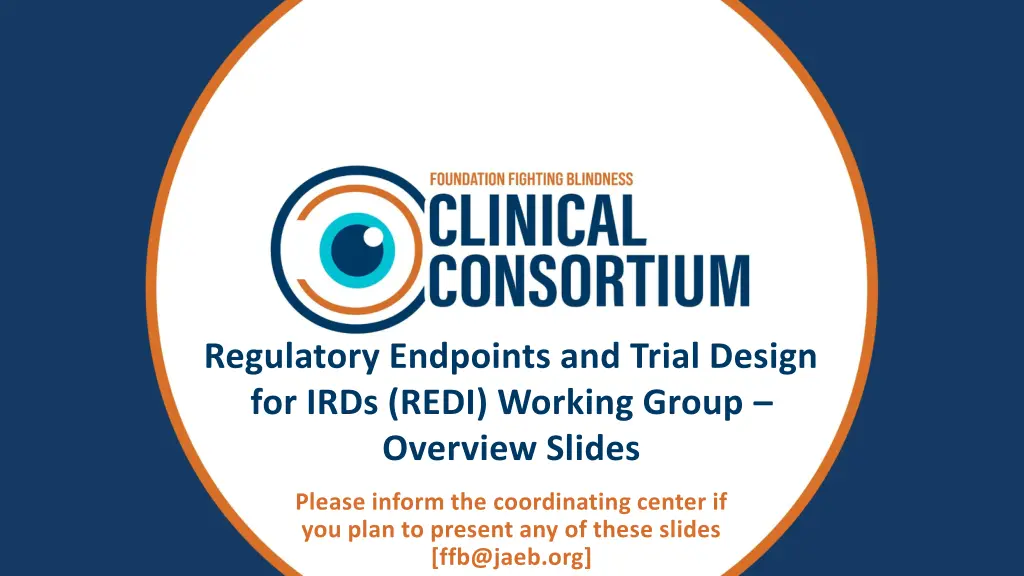
Working Group Overview: Regulatory Endpoints and Trial Design for IRDs
Collaborating with experts, the REDI Working Group focuses on refining study design methods for IRD clinical trials. They review past trials, establish reporting standards, and develop endpoints to enhance patient outcomes. Explore their initiatives and timeline for assessing IRD endpoints.
Download Presentation

Please find below an Image/Link to download the presentation.
The content on the website is provided AS IS for your information and personal use only. It may not be sold, licensed, or shared on other websites without obtaining consent from the author. If you encounter any issues during the download, it is possible that the publisher has removed the file from their server.
You are allowed to download the files provided on this website for personal or commercial use, subject to the condition that they are used lawfully. All files are the property of their respective owners.
The content on the website is provided AS IS for your information and personal use only. It may not be sold, licensed, or shared on other websites without obtaining consent from the author.
E N D
Presentation Transcript
Regulatory Endpoints and Trial Design for IRDs (REDI) Working Group Overview Slides Please inform the coordinating center if you plan to present any of these slides [ffb@jaeb.org]
Regulatory Endpoints and Trial Design for IRDs (REDI) Working Group Collaborate with a wide range of subject matter experts to identify and propose best study design methods for IRD clinical trials, obtain input from industry and regulatory bodies, and disseminate recommendations Scope includes: Review Prior Trials and Lessons Learned Establish Reporting Standards Develop Endpoints
REDI Approach for IRD Endpoints Use FFB Consortium NHS data to evaluate functional and structural measures of progression Develop candidate endpoints, including modification of existing endpoints and creation of new endpoints Compare properties of candidate endpoints, including repeatability, sensitivity, correlation with disease stage/progression, floor/ceiling effects, patient burden, degree of subjectivity, and clinical benefit Identify best candidate endpoints relative to various trial considerations, including study phase and goal of intervention (reverse/slow/stop disease)
REDI Initiative #1: RUSH2A Endpoints Use data from FFB Consortium s first natural history study as the first application of this approach Consider if recommendations may apply to other slowly progressive IRDs that affect rods and the periphery first while maintaining central visual function and cone function Timeline December 2022: Completion of RUSH2A Year 4 Visits March 5, 2023: Meeting with Working Group and industry June 9, 2023: Meeting with FDA Q4 2023: Modifications based on regulatory input Q4 2023: Publish recommendations
